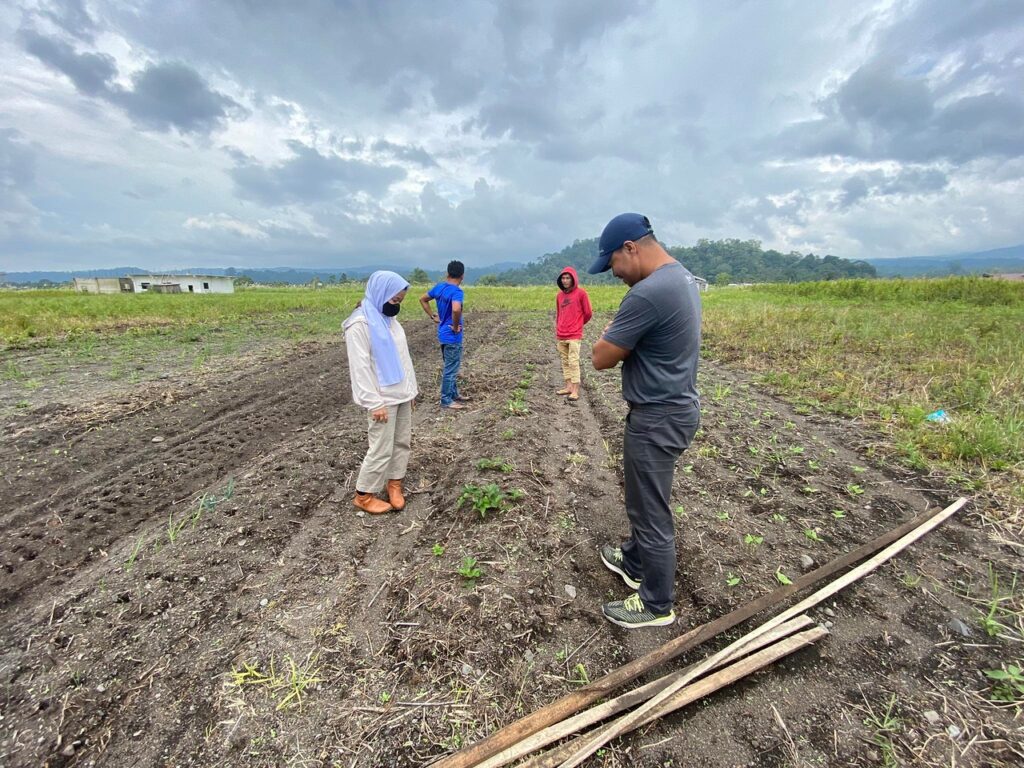
Data Collection
Rapid, accurate data collection is IMPL. PROJECT’s speciality. If you need data from a challenging operating environment – IMPL. PROJECT is the NGO you have been looking for. We work with our partners in the field to rapidly collect and analyze data, understand and assess the root causes of community problems, and facilitate community-driven, targeted programming to create development and stability solutions. Through this deeply consultative process, we are able to create a community-centered framework for integrated data collection and bespoke programming specific to each community and problem set. True to our name, effective programming implementation is at the center of all operations – hence our name, IMPL. PROJECT.
We rely on clean, quality data to inform the benchmarks for our research and analysis as well as the baselines for our community programming, MERL project support, and philanthropy initiatives that will improve the lives of people living in vulnerable communities.
Large volumes of data are collected through structured, geo-tagged quantitative surveys and qualitative engagements such as focus group discussions, site assessments, and key leader interviews with people who live in the communities where we work, and who are impacted by the vulnerabilities present there. Throughout this process we provide our clients and partners with robust geospatial visualizations and analysis of community dynamics coupled with back-end data dashboards for near-real time monitoring. This approach allows us to break through sector silos to address multiple development sectors concurrently and results in large scale data sets that are easily disaggregated against numerous variables.
How It’s Normally Done
Put simply, data collection is not conducted often enough in the international development sector. When data collection is conducted, the data is frequently of poor quality, not collected in the proper way using industry best practices, not collected in large enough scales to disaggregate to local contexts, and the process is slow, making the data obsolete before it can be leveraged into effective and timely programming interventions.
For-profit companies, agencies, and non-profit organizations offering development solutions often approach a community with a plan or agenda already in place before they even step foot in the country. Local community actors and organizations are often not consulted for buy-in or ideas. This is akin to a shot in the dark, carrying a high probability that the programming developed will fail to adequately address a problem plaguing the at-risk community in question, and will fail to adapt to rapidly changing operating dynamics.
In instances where data is collected, interviews may be conducted solely with people in power or actors and individuals with questionable motives and integrity, rather than from the people who are most impacted by the community’s vulnerabilities. This leads to programming interventions that oftentimes do not reach those communities and groups most at-risk and vulnerable and less than effective impacts and outcomes.


How IMPL. PROJECT Does It
At IMPL. PROJECT, we are data driven first and foremost, with our quantitative and qualitative data used to drive every action we take. Our goal is to not only gather thorough, large-scale, and accurate datasets, but to then share that data with others so poor-quality data doesn’t have to be an obstacle to programming.
Prior to conducting the data collection, we’ll go into a community to find locals who will help us collect data and provide invaluable context during our analysis and program design process. This helps ensure that every decision we make is with the community’s needs in mind.
These team members are trained on how to collect data using our tech tools and industry best-practices, and are consulted on the best way to design a data collection project. IMPL. PROJECT co-designs surveys with the local team, and then we begin the process of surveying a community.
All of our data can be disaggregated by gender, age, ethnicity, location, and numerous other variables. IMPL. PROJECT’s turnaround time is fast – we mean super fast; for example, on a data collection project across 5 regions in Azerbaijan, IMPL. PROJECT collected more than 3,000 structured, geotagged surveys in just 10 days.
The collected data gets fed into an analysis software which the U.S. team analyzes with the help of our local staff. That data combined with the analysis gets spun into final reports and recommendations about how our clients can use their funding streams and design programming to have the most impact.
Our data collection is conducted at the beginning, in the middle, and at the end of every project at a minimum to track progress and account for events on the ground. This is in stark contrast to most projects where data is collected less frequently, less effectively, and at much smaller volumes making accurate analysis of vulnerabilities and resiliencies impossible.
Benefits of Our Methodology
With clean, quality data, we can accurately identify the root causes of instability and vulnerability in a community and work towards developing programming that is specifically targeted to address those issues. Since our data is collected through surveys with everyday people inside the communities, we know that the programming we create will benefit them directly.
As a non-profit organization, our aim is to empower partners and trusted actors and stakeholders to leverage data for development and build capacity locally, allowing others to pick up where we left off and continue to make a difference in their communities.

